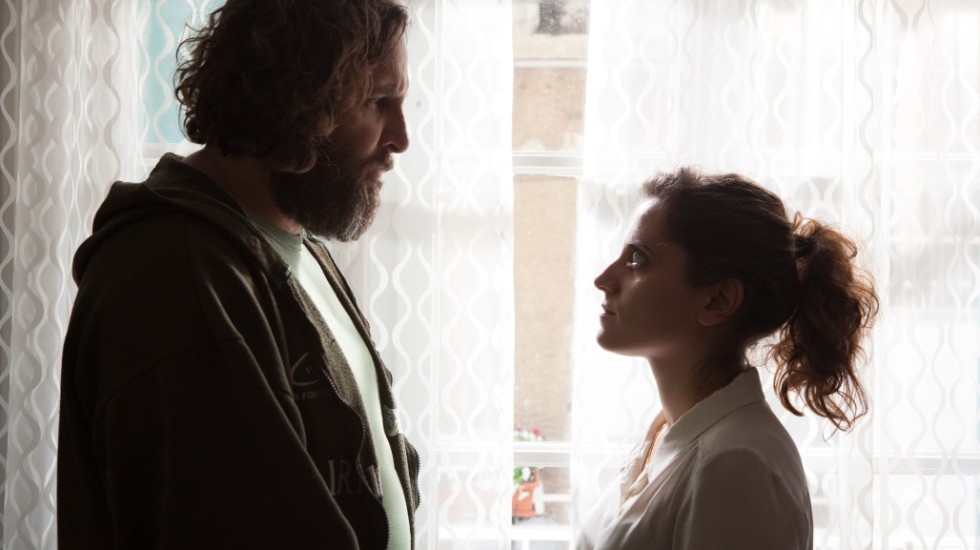
Saving Neta joins director Nir Bergman’s rich repertoire of feature films: Yona, Intimate Grammar and Broken Wings. Bergman’s characters are written with empathy, humor and compassion. They may be deeply twisted, move through the world backwards and upside-down and make the wrong choices, but one feels for them. His films reveal a deep affinity for the artistic process, merging a quintessential humanity with imaginative freedom.
Saving Neta opens with a festive image: people coming together to see a show, a temporary community. We do not know their histories or relationships, but we can sense their mood. The encounter is very brief, one barely has time to linger on a face or two, family vignettes of adults and children, then the camera cuts to a green landscape. Saving Neta is presented in chapters, each tells a story, a fragment of a life history; all the stories together developing over time, with the rhythms of nature.
Neta, designated by the title as the hero of this work, makes an entrance so casual that it may well be overlooked on first viewing. Bergman, in these stories, piques our interest as much for making us aware of all that we do not know, as for all that is explicitly revealed. The film introduces us to characters in mid-action, stays with them and their story for a while, then moves on, leaving the viewer to wonder about them and their lives.
The relationships between one story and another are tangential, associative, and Bergman maintains a light serendipity about these connections. Dalia is an officer in the IDF, coping with the familiar strain of family and work pulling her in different directions. Instructing young trainees, she reminds them that it is imperative for them to remain emotionally uninvolved, unavailable. She presents a stern façade to the world and to her daughter, yet cannot escape her own vulnerability. Ruti is a young cellist in love, she and her partner Noga are trying to start a family. Miri has the prescribed family: there is a mother, a father, a girl and a boy – and they are all on a picnic. Yet as their story unfolds, it becomes apparent that the picture is not as perfect as it seems. Sharona has lived abroad for many years, now she is back in Israel for her mother’s funeral, and to make arrangements for her sister Dan Dan, who is disabled.
One learns Neta’s story through his involvement in the lives of these women, and through his encounter with them, Neta discovers himself. Bergman has created an unusual, beautifully crafted, and moving film that reminds us: while we are busy going crazy in our own life story, someone else’s life story is happening at the same time. We touch other lives whether or not we intend to, and their lives touch our own.
Saving Neta
Directed by Nir Bergman; Screenplay: Nir Bergman & Eran Bar-Gil; Cinematography: Lutz Reitemeier; Editing: Arik Lahav Leibovich; Music: Asher Goldschmidt; Cast: Benny Avni, Rotem Abulav, Irit Kaplan, Naama Arlakay & Neta Riskin.





